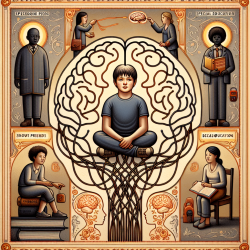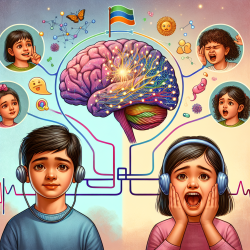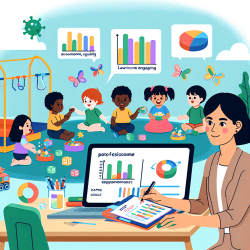Building Better Bonds: How Relationships Shape Adolescent Personality
As a practitioner working with adolescents, understanding the intricacies of personality development is crucial. A recent study titled "Personality pathology in adolescence: relationship quality with parents and peers as predictors of the level of personality functioning" sheds light on the significant role that relationships play in shaping adolescent personality. This blog will explore the findings of this study and how you can apply them to improve your practice.
The Importance of Relationships
The study highlights that the quality of relationships with parents and peers significantly impacts the level of personality functioning in adolescents. Discord in parent relationships was found to be a strong predictor of severe personality functioning impairments. In contrast, closeness with parents and peers was associated with healthier personality development.
Key Findings
- Discord in parent relationships correlates with higher personality impairments.
- Closeness with parents is a stable predictor of personality functioning across adolescence.
- The significance of peer relationships increases with age, affecting personality functioning.
- Both very low and very high levels of closeness in peer relationships can contribute to personality impairments.
Implications for Practitioners
As a practitioner, fostering strong, positive relationships between adolescents and their parents can be a protective factor against personality dysfunction. Encouraging open communication and emotional support within families can mitigate the negative effects of discord.
Additionally, helping adolescents navigate peer relationships is essential. As adolescents grow, peers play a more significant role in their social world. Facilitating group activities and social skills training can promote healthier peer interactions.
Encouraging Further Research
While this study provides valuable insights, it also opens avenues for further research. Understanding the nuances of how specific relationship dynamics affect personality development can lead to more targeted interventions. Practitioners are encouraged to stay informed and contribute to ongoing research efforts.
Conclusion
In conclusion, the study underscores the critical role of relationships in adolescent personality development. By fostering supportive environments and addressing discord, practitioners can help adolescents achieve healthier personality functioning.
To read the original research paper, please follow this link: Personality pathology in adolescence: relationship quality with parents and peers as predictors of the level of personality functioning.










